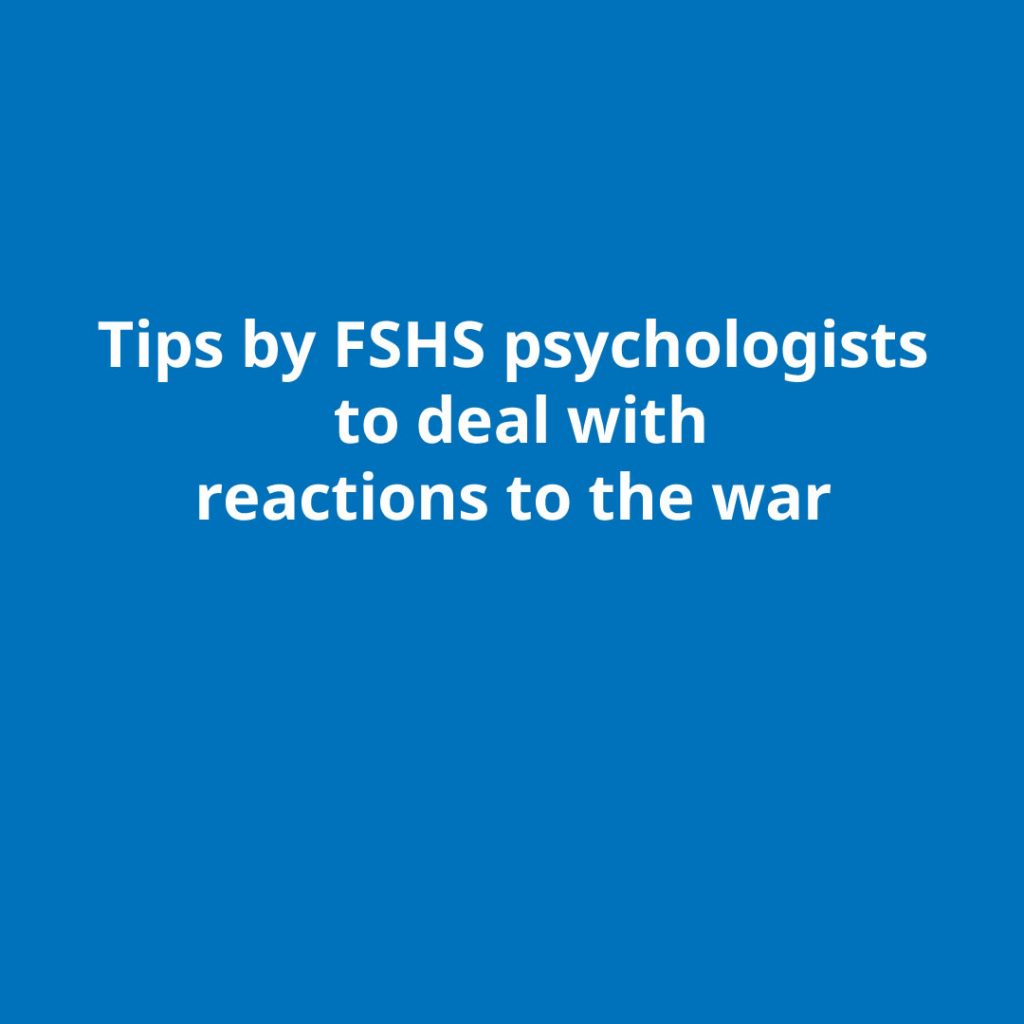The Russian invasion of Ukraine has shocked people around the world. War, the distress of people in the war zones and concern for our safety have been in everyone’s mind during the past week. The events currently unfolding are causing all kinds of thoughts and emotions such as anxiety, hatred and fear.
Nowadays information spreads rapidly via the news and social media, which brings the shocking situation in Ukraine even closer to our daily lives. Many of us want to follow the situation and stay up-to-date with events, but the information coming from the conflict areas in almost real time can bring distress and anxiety very close.
Typical reactions to shocking events
It’s natural for the mind to react to new and worrying things and uncertainty. Emotions and reactions vary from one person to another, and they can be mixed and fluctuate. All emotions are acceptable and should be taken as they are, as a normal reaction of the mind. Despite this, you should not dwell on them or spend too much time worrying, but focus on the things that you can influence. By improving our well-being, we can cope better with stress and keep hope alive.
Self-care tips
- By taking care of your body you’re also taking care of your mental health. Getting enough sleep, eating a balanced and regular diet, and exercising and spending time outdoors all promote well-being.
- Spend time with others, stay in contact with family and friends, and talk about your worries.
- You can also process your worries by writing them down for a while.
- Focus on the present, on positive things that bring enjoyment.
- If the news makes you anxious, spend less time with the media and online discussions.
When should you seek outside help?
Signs that you should seek outside help:
- The initial shock doesn’t get easier, and you’re constantly anxious, feel down or have outbursts of emotions.
- You’re not able to study.
- You have trouble sleeping or loss of appetite.
- Your mind is racing and you can’t calm down.
- You isolate yourself from others.
- You experience hopelessness or have lost enjoyment.
Groups particularly affected
The situation can be particularly hard for certain students, such as those with family or relatives in Ukraine. Students with connections to Russia may also experience strong reactions.
There are also students who have moved to Finland from other conflict areas. They may have witnessed war or heard about shocking events from their family. The current news may bring distressing images to the surface.
Here is how you can support your fellow students who are particularly shocked about the situation:
- Ask how they are coping.
- Try to instil a sense of security in them and remind them that life in Finland is still peaceful.
- Do things together to have something else to think about: go outdoors, engage in activities, spend time with friends.
Support
- FSHS´s anonymous chat service MieliChat weekdays 8-14 via the Self online service.
- The crisis helpline provided by MIELI Mental Health Finland operates 24 hours a day throughout the year, tel. 09 2525 0111. Calls are anonymous and confidential.
- Sekasin chat helps those under 30 (weekdays from 9 am to midnight, weekends from 3 pm to midnight), and Solmussa chat helps those over 30 (Monday to Thursday, 3 pm to 7 pm).
- MielenTEKoja chat provided by Nyyti ry provides support in Finnish and English (Mondays, 5 pm to 7 pm).

